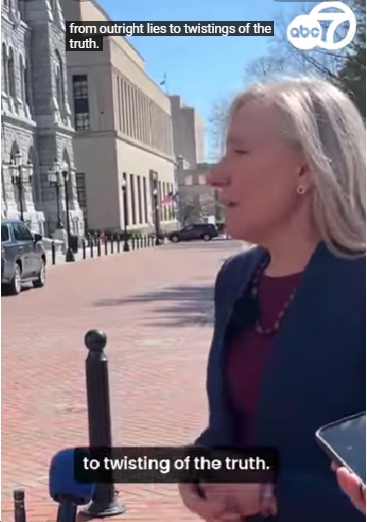Preamble:
I listened to a panel of some of the usual MSNBC legal experts discussing the question of how much threat to President Trump either of his two recent “flippers” poses, Michael Cohen and Paul Manafort. Out of that conversation arose the further question of whether a President can be impeached for misdeeds committed before he assumed office, or if only “high crimes and misdemeanors” committed after taking the oath of office can be impeachable offenses.
One former federal prosecutor declared that of course, if we were to discover that a President had committed murder some time before being elected, we would not just let that murderer continue as President. To which another former federal prosecutor asserted that the United States had already done just that: It was well known that Andrew Jackson had killed a man in a duel, when dueling was already a crime, and yet had been elected and allowed to serve. (Admittedly, it wasn’t quite the equivalent of “murder.”)
And that’s where the discussion of that point ended. Which I thought regrettable, because they failed to make what I imagine might be an important distinction.
There could be crimes committed of a miscellaneous sort– misconduct of various kinds over the years prior to someone’s being elected to the Presidency.
But what if the crimes a President-to-be committed were key to his winning the presidential election?
When an election has been rendered illegitimate, in other words, is a nation stuck with the results?
****************
The issue of “illegitimate” elections is one faced, in different ways, by the two major Anglo-Saxon nations on either side of the Atlantic. Elections in both the US and the UK in 2016 amounted to national self-inflicted wounds. And in both elections, the determinants of the electoral results are of questionable legitimacy.
The US has been steadily bleeding from its self-inflicted wound (of making Donald Trump President).
With respect to Brexit, by contrast, while it has had the nation in turmoil and uncertainty for two years, the main disastrous results of the Brexit referendum in the UK lie still in the future. (Albeit that future is now only months away, unless the Brexit referendum results are somehow overturned.)
The taints on those two elections have some elements in common, while some are different:
In both elections, covert interference by the Russians — eager to damage liberal democracies and reduce the power of the West — was a factor. Whether the Russian high-tech interventions were determinative of the outcomes cannot be definitively proved, but at least in the US that seems (to me) more likely than not.
In both elections, the role of lies — beyond the usual level of political prevarication — was considerable:
Donald Trump — as candidate, as President — proved himself to be an extraordinary liar, an incorrigible con man. But Americans did vote for him after his dishonesty should have been clear to everyone. (And perhaps the long-running demonization of Hillary Clinton — with years of lying — should be weighed in on this scale.)
With the campaign of the “Leave” side on Brexit, the lies were powerful factors– e.g. the idea that Brexit would free up great sums of money for the National Health Service was a lie that was admitted immediately after the Leave side won the referendum.
(Another lie of a more subtle sort from the Leave side was their speaking as if leaving the EU would be a piece of cake, while in fact they never had any real plan of what could or should be done if they won.)
Then there are the differences:
How bound the UK should feel by the Brexit referendum might rightly be influenced by the complete unsuitability of the issue for being put to the public. There never should have been such a referendum.
(Representative democracies operate on the combined notions that the public should make very basic choices about values, principles, and overall direction, while their representatives will make decisions on matters that require in depth and often technical knowledge and understanding. An unfortunate bit of political maneuvering and misjudgment resulted in the public being asked to decide an issue beyond its competence.)
The self-inflicted wound of the 2016 presidential election in the US, meanwhile, was evidently tainted by the winner’s having cheated. That we know from the Michael Cohen plea, where he declares under oath that the “candidate for federal office” directed him to break campaign laws in order to deprive the public of information that might have influenced the voters in the election that lay just ahead.
And soon we will likely find out that the winner of our Presidential election committed the far more serious crime not only of seeking campaign help from a foreign source, but actually conspiring with the nation’s most hostile adversary to get himself elected.
If that proves to be the case, it is hard to see how that would not be as impeachable an offense as anything he could do once in office.
Even beyond the issue of impeachment, that leaves additional questions about how a nation can deal with an election whose results are deemed to have been illegitimate.
One can never turn back the clock and live out the alternative history of a legitimate outcome. But what about the various potentially — at least conceivably — reversible actions that the illegitimate President has taken. (Such as the appointment of judges.) Is the nation stuck with all such things even if it is judged both that the President’s victory was made possible only by crimes he committed and, beyond that, that he even showed himself to be treasonously aligned with the nation’s major enemy?
In the case of Brexit, there are voices being raised in Britain calling for a second referendum. But for the most part, the political class of the UK seems determined to treat the outcome of the 2016 Brexit referendum as an irreversible, unchallengeable decision. Even though it has become ever clearer that its results will be economically disastrous for the nation.
Two great nations. Two self-inflicted wounds. Will the United States and the United Kingdom manage to find ways of repairing the damage.
How can, and how should, a nation deal with an illegitimate election?





![Video: Speaking at Democratic AG’s Conference, Jay Jones Says Trump “probably doesn’t like the fact that I’m sitting in this seat, but here I am ready to defend [against] anything that he’s trying to do.”](https://bluevirginia.us/wp-content/uploads/2026/02/jonessanfran.jpg)












